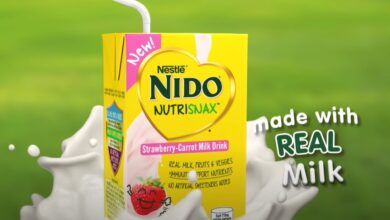Sour Cream Nutrition Facts
Sour cream is a popular dairy product used in a variety of culinary dishes. Its creamy texture and tangy flavor make it a favorite for toppings, dips, and recipes. Understanding the nutritional content of sour cream can help you make informed dietary choices. In this article, we’ll delve into the detailed nutrition facts of sour cream, exploring its macronutrient composition, vitamins, and minerals. We’ll also answer some Frequently Asked Questions about sour cream’s nutritional benefits and potential drawbacks.

Introduction
Sour cream, with its rich and tangy flavor, is a staple in many kitchens around the world. Whether dolloped on baked potatoes, mixed into dressings, or used as a base for dips, it adds a unique taste and texture to a variety of dishes. But beyond its culinary uses, what do we really know about sour cream’s nutritional profile? This article aims to provide a comprehensive overview of sour cream’s nutrition facts, offering insights into its calorie content, macronutrient breakdown, and the vitamins and minerals it contains. By the end of this article, you’ll have a clear understanding of how sour cream can fit into a balanced diet.
Nutritional Breakdown
Macronutrients
Sour cream is a significant source of fat and provides moderate amounts of protein and carbohydrates. Here’s a detailed look at the macronutrients in a typical serving (1 cup):
- Calories: 492 kcal
- Total Fat: 48.2g
- Saturated Fat: 30g
- Monounsaturated Fat: 4.1g
- Polyunsaturated Fat: 0.5g
- Cholesterol: 101mg
- Sodium: 122mg
- Total Carbohydrate: 9.8g
- Sugars: 0.4g
- Fiber: 0g
- Protein: 7.3g
Vitamins and Minerals
Sour cream also contains several essential vitamins and minerals, although not in large quantities. Here are some of the key nutrients found in sour cream:
- Vitamin A: 450 mcg (20% DV)
- Vitamin D: 0 mcg
- Calcium: 270 mg (21% DV)
- Iron: 0.2 mg (1% DV)
- Potassium: 288 mg (6% DV)
- Vitamin C: 2 mg (2% DV)
Health Benefits and Considerations
Benefits
- Rich in Calcium: Sour cream is a good source of calcium, which is essential for bone health.
- Provides Energy: With a high-calorie content, sour cream can be a quick source of energy.
Considerations
- High in Saturated Fat: Sour cream is high in saturated fat, which can impact heart health if consumed in large amounts.
- Lactose Content: Those who are lactose intolerant may need to avoid or limit sour cream.

Frequently Asked Questions
What is the calorie content of sour cream?
One cup of sour cream contains approximately 492 calories. This makes it a high-calorie food, suitable for those needing an energy boost.
Is sour cream a good source of protein?
Sour cream provides about 7.3 grams of protein per cup, which is relatively moderate. It’s not a primary source of protein but can contribute to your daily intake.
How much fat does sour cream contain?
Sour cream contains 48.2 grams of total fat per cup, with 30 grams of saturated fat. This high fat content is something to be mindful of, especially for those managing their fat intake.
What vitamins are present in sour cream?
Sour cream contains several vitamins, including Vitamin A (450 mcg), which supports vision and immune function, and small amounts of Vitamin D and Vitamin C.
Can sour cream be part of a healthy diet?
Yes, sour cream can be part of a healthy diet when consumed in moderation. It’s essential to balance it with other nutrient-dense foods and be mindful of portion sizes.
Conclusion
Sour cream is a delicious and versatile dairy product with a rich nutritional profile. While it offers several health benefits, such as providing calcium and energy, it’s also high in saturated fat and calories. Moderation is key when incorporating sour cream into your diet. Understanding its nutritional content can help you make informed choices and enjoy sour cream as part of a balanced diet.





